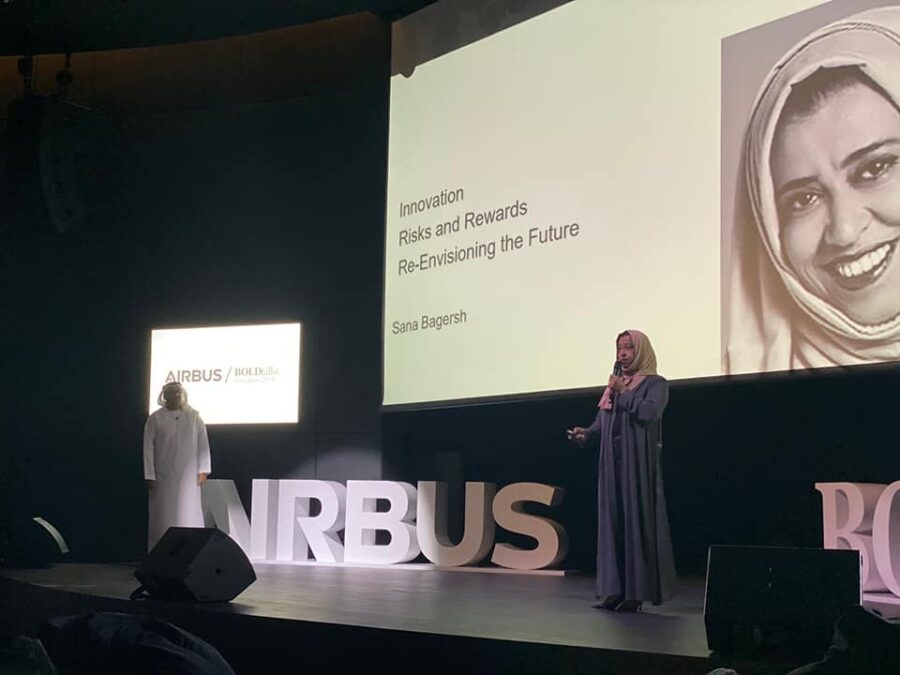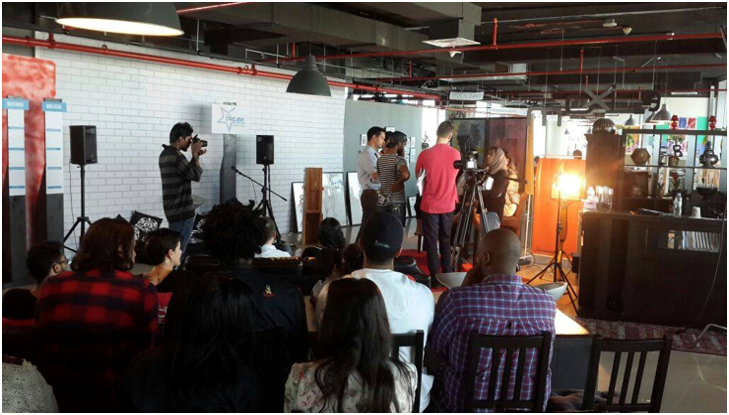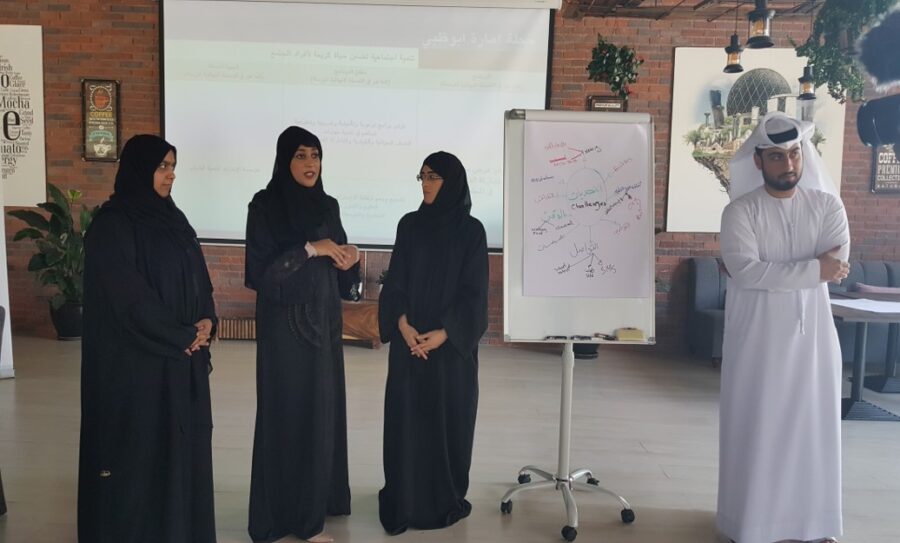PEDAL HARDER: SOCIAL MEDIA LEADS THE MARKETING RACE
(As published in Tempo magazine, April 2012) By Ian Mason I like to think of myself as a modern guy. But when it comes to marketing, I have arrived at the awful realisation that I am decidedly pre-historic. As a marketing professional, this equates to disaster. I was like the proverbial ostrich with its head in the sand, naively thinking the phenomenon that is social media was a passing fad – if I stayed buried long enough, it would pass over and we’d return to the traditional mainstream media I am so familiar with. Doh! Opportunity lost Now I am pedalling harder than the Tour de France cyclists to catch up, but I am not sure I ever will. I know a wall from a tweet, a connection from a twinkle, but even these are almost archaic now as even newer technologies develop. My slowness to catch on is like bypassing a whole generation. No longer can marketers simply talk in terms of television, newspapers, magazines and radio. Social media should now be a part of most marketing campaigns, for good reasons. It is cheap, it is targeted, it is measurable – everything a marketing manager wants. Twitter vs LinkedIn I am a user of Facebook – though not a good one – but I don’t use Twitter. My social life is my own and I don’t want to share every aspect of my day. However, I accept that Twitter is an influential marketing tool and the clever use of tweets, re-tweets and hash-tags can be a potent communicator if harnessed correctly. I have, however, emerged from the sandpit for long enough to become a convert to LinkedIn, and not just in terms of building contacts for future employment (don’t tell the boss). LinkedIn is also a business development tool. People who accept connection requests – or ask to be connected – understand the nature of LinkedIn so using your contacts as business leads is fair game, as long it doesn’t become pestering. That’s not the spirit of the game. New twist to an old concept The key to unlocking the clout of social media is in the words. Social. Media. Or, in simpler terms, broadcasting messages to friends, and friends of friends, and friends of friends’ friends, and so on. Engaging with the community is exactly like the old-fashioned ‘word-of-mouth’, it just uses a computer screen and keyboard. Therefore the power of social media lies in being social. Many marketers boast that the number of ‘Likes’ on Facebook indicates their company’s popularity. While this certainly helps in marketing terms, it is also very similar to the old ‘hits’...
A CITY IN TRANSITION: DON’T FIGHT THE CHANGE!
(As published in Tempo magazine, March 2012) By Ian Mason Change is swirling around Abu Dhabi, as thick in the air as sand from a shamal. The skyline is changing, culture is changing and even the weather patterns are changing. Change is happening in our business world too; some of it good, some not so good. Reorganisation at government and corporate entities means that things don’t stay the same for long, and it is inevitable that you will be affected by change, either personally or through your family and friends. Change triggers different reactions in people. Many are inspired by change; for others, it means anxiety, uncertainty and demotivation. Change might lead to new job descriptions, new colleagues, new office locations, new cultures, new ways of thinking…that is if you manage to actually hold on to your job. Many people scoff at change and underestimate its harmful effect on employees. Handling change management is a skill that few people have, and poor execution can exacerbate the problems that might exist. Managing change can be as detailed as employing specialist change management consultants to oversee the process, or as simple as conducting some highly targeted, spectacularly fun team development activities. There is no right or wrong approach – it is whatever suits the circumstances best. Team development – or team building – events are not appreciated by all; sceptics see it as a way to extract thousands of dirhams from susceptible companies. However, many firms, some of them on the Fortune 500 list, use team development to re-energise, re-motivate and re-connect staff who are suffering the negative effects of change. Team development has a vital role to play in providing an outlet for internal frustrations and anxieties. Such anxieties can manifest itself in ways such as jostling for power, working inclusively, acting in a superior manner or even deliberate destabilisation, and none of these are conducive to business harmony and growth. No facilitator worth their salt will claim that a one-off, single-day team development event is the panacea to corporate ills. However, an exciting day of inspiring and creative events, with or without a message, can have a positive impact on a team, and repeated events can lead to more permanent behavioural change. Team development is often associated with extreme events such as rockclimbing or firewalking, and if that does it for your team, go for it! But team development doesn’t need to be as severe as this. Thoughtful games, puzzles and activities can generate the same positive outcome, as long as they fit with the company’s desired outcomes and are delivered in stimulating and memorable way. Team development can...
Make this the year of the customer
(As published in Tempo magazine, February 2012) By Ian Mason Maybe it was the festive cheer, the silly season or even the thrill of a new year, but I have recently experienced a rush of great customer service in Abu Dhabi, some from unexpected sources. By great customer service I don’t mean an attendant who smiles like a robot and drones automated phrases like ‘have a nice day’. That is not customer service. No, I am talking about genuine, out-of the-ordinary customer service that makes you feel good about the company, compels you to tell dozens of friends and keeps you returning to experience the brand. Customer service is the simplest and easiest way to increase revenue; your customer is already doing business with you. It is critical to develop this contact into a long-term, loyal customer. What a priceless asset that is to your business! Current customers are more cost-effective than new customers and easier to maintain…that’s if you look after them. Do loyal customers come in an IKEA box? No. What it takes is a bit of C-A-R-E. Care and attention and a genuine desire to please. Frankly, I am sick of the well-worn phrases that come straight from the ‘Customer Service 101’ manual. It makes me want to reach for the nearest bucket. Excellent customer service comes from throwing away the manual. Sure, there are some basic ‘rules’ but excellent customer service is about bending the rules, being flexible, listening intently to the customer and giving them what they want, not what the company wants. I mentioned excellent customer service from an unexpected source. I am talking about Etisalat. We recently made a new internet connection and had the pleasure of being served by a lovely young Emirati lady at Etisalat’s main Airport Road building – I only wish I knew her name so I could write a praising letter to her manager. She said she was there to help us, and when my wife expressed concern about e-Life, insisted she wanted us to be happy and comfortable and would explain anything we didn’t understand as many times as she needed to. Which she did. After closing time! Faced with complicated plans – and endless terms and conditions – this was so refreshing. It was genuinely offered, and showed she cared. Thank you! Honourable mentions must also go to two other companies we have recently had dealings with (and I am not personally affiliated with them): Delight International Movers and the Subscriptions Department at The National. In different ways, they provided a rapid and flexible response to my queries. Both customer service representatives listened, cared and followed through on...
BE BATTLE READY: KEEP MOVING AND GROWING
(As published in Tempo magazine, January 2012) By Ian Mason I vividly remember my first trip to Hong Kong more than 25 years ago. My wife and I had decided to use the Metro to get around. On our first day, we found the Metro station (easy), bought a ticket (no problems) and stood on the platform, expectantly waiting for the next train. It soon arrived, announced by a furnace of gushing air, and rumbled into the station before easing to a stop, the doors neatly aligned with the queuing areas dotted along the platform. It was all tranquil and serene as the electric doors glided open, and we stood back, in our traditional British-mannered upbringing, to allow the arriving passengers to alight. As Julia Roberts once said, mistake…big mistake! Suddenly, from behind, swarmed an army of human bodies. Battalions of rushing commuters, pushing, shoving, bumping, elbowing, bustling past us in their bid to be the first through the train doors. The people inside the train were forced back, until they finally found a crack in the advancing lines and zig-zagged their way onto the platform. We couldn’t retreat. We just cowered beneath an arsenal of briefcases, handbags, shopping baskets, stilettos and brogues as waves of battle-hardened troops, flanking wide, powered towards their target. Finally the skirmish was over. The doors slammed shut, and the train sped off to its next battlefield. We were left behind, our innocence and naivety mortally wounded, as peace again descended on the station. Is there a moral to this story? You bet. Don’t stand still or you will be crushed by the crowd. Same in the business world. The world of commerce in Abu Dhabi is thronging with competition, and those who stand still will be trampled in the rush. What does ‘standing still’ mean? It is not keeping up with current trends. It is being complacent. Thinking ‘my world’s OK, Jack’. Believing you can’t improve. Not upskilling yourself and your staff. If you do not undertake training, you are susceptible to attack from the well-armed forces around you. The young turks. The dissidents. Those who see the wisdom of training their staff to be the best in the game and invest heavily in employee development. Training in today’s business world is not a luxury. You can’t just spend a few dirhams of petty cash. Training is now a necessary part of your business strategy, and deserves a 12-month plan to ensure your staff update their skills and are equipped with the latest knowledge to battle the corporate world. Plug alert: Tamakkan Corporate Bootcamp workshops have been designed to get companies into shape...
Emirati Entrepreneur
(As published in Tempo magazine, December 2011) By Ian Mason Strewth! If you were a visitor to Australia, you’d be dining with a dingo, cooking with a kangaroo and waltzing with a wombat. But in Abu Dhabi, Emirati cultural experiences don’t seem to extend much further than the magnificent Sheikh Zayed Grand Mosque. Sure, there is the Heritage Village, but culture is about interpretation, and the Heritage Village could do it so much better. And don’t start me on the desert safaris. Belly dancers, shisha…not really Emirati culture, is it? If you surveyed 100 people arriving on the next Etihad flight, I reckon 79 of them (ok, so we guessed) would be visiting for a cultural experience. Culture is a powerful attractant for visitors. People travel because they want to experience a different lifestyle to their own, broaden their cultural awareness and show off their newly-found knowledge to their friends back home. But experiencing traditional Emirati culture in Abu Dhabi is often harder than applying for residency. The tourism industry in Abu Dhabi – indeed the whole UAE – is crying out for Emirati cultural experiences. It is not as though the possibilities are short either. How’s this for an example. A foodies tour that visits the fruit and vegetable market, allows visitors to cook a traditional Emirati meal and sample hospitality in a majlis. Imagine that in the skilled hands of an Emirati guide. Or perhaps an arts tour featuring paintings, handicrafts and calligraphy. A nature tour visiting the Falcon Hospital and Saluki Centre. A shopping tour to the souks to try on an abaya. A sail on a dhow. A basic Arabic language lesson. This is Emirati culture, the thing that 79% of visitors (according to the Mason method of research) want to experience in Abu Dhabi. The UAE needs Emiratis to proudly interpret and preserve their own culture. It demands entrepreneurs with the energy, vision and passion to showcase these cultural experiences. The Director of Strategy and Policy at Abu Dhabi Tourism Authority says so. More importantly, visitors say so. The UAE must highlight its grassroots culture – not just the broadscope cultural precinct being built on Saadiyat Island – and it is Emirati entrepreneurs who must drive it. They need to bring their Bedouin knowledge, their life experiences, their family heritage to the 2.3 million hotel guests expected to pile into the country by the end of 2012. And help is freely available. The Khalifa Fund aids visionary Emiratis with financial support while organisations such as Tamakkan offer an amazing mentoring and training base. I’m a Westerner. I can’t do it. It would look plain...
SEARCHING FOR THE NEXT IDEA!
(As published in Zawya, 2nd April 2012) Abu Dhabi—Business support organisation Tamakkan has teamed with Boston University’s Brussels campus to launch a new competition for budding entrepreneurs in the UAE. The Social Enterprise Business Plan competition is designed to encourage and support entrepreneurs with a great idea in the field of social enterprise. Tamakkan founder and Managing Director of leading communications company BrandMoxie, Sana Bagersh, says the competition will promote a range of new ideas for SME businesses. “All entrepreneurs need to be supported,” said Bagersh. “We are delighted that one of the world’s leading universities, Boston University, is strongly behind this local Tamakkan initiative.” Entrants with a great social enterprise idea are asked to submit a one or two page outline of their idea, including funding options and a brief discussion of how the idea engages the community and promotes environmental sustainability. Entries close on Thursday 12 April and can be emailed to business@brandmoxie.com The winner will receive a ticket to the Corporate Leadership Workshop being conducted by Boston University’s Brussels faculty in Dubai (28-29 April) and Abu Dhabi (3 May) covering Excellence in Project Management, Presentation and Communication Skills, and Organizational and Team Dynamics. “This course will help accelerate the winner on the fast track of corporate leadership by enabling them to experience practical approaches to current dilemmas,” said Melissa Rancourt, Head of Faculty at Boston University in Brussels. Tamakkan, an initiative of BrandMoxie, is an organization aimed at nurturing entrepreneurship, leadership and innovation. Established in June 2009, it has steadily grown into a powerful knowledge sharing and training platform with free monthly seminars to encourage networking and business development. Ends Media information: For media information about the Social Enterprise Business Plan competition, contact Mr. Ian Mason, Manager, Tamakkan on 02 491 8624 or 050 739 5429....




